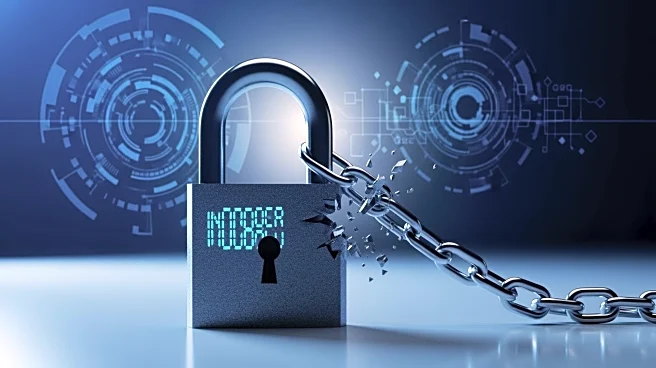What's Happening?
The University of Pennsylvania has confirmed that a hacker stole data during a recent cyberattack. The breach involved the university's development and alumni systems, leading to unauthorized access and the dissemination
of fraudulent emails to alumni and affiliates. The attack was executed through social engineering techniques, which tricked individuals into revealing sensitive information. Despite the university's rapid response to secure the systems, data was compromised before the systems were locked down. The hacker's message, sent from official university email addresses, included threats to leak data and criticized the university's policies.
Why It's Important?
This cyberattack highlights vulnerabilities in institutional cybersecurity, particularly in higher education. The breach could have significant implications for the university's reputation and the privacy of its affiliates. The incident underscores the importance of robust security measures, such as multi-factor authentication, which some high-ranking officials reportedly bypassed. The attack also reflects broader concerns about affirmative action policies, as similar breaches have targeted other universities. The financial motivation behind the hack suggests potential risks for donor relations and financial transactions within the university.
What's Next?
The University of Pennsylvania is legally required to notify individuals whose personal information was accessed. The timeline and scope of these notifications remain unclear. The university may face increased scrutiny regarding its cybersecurity practices and affirmative action policies. Stakeholders, including alumni and donors, may demand more transparency and stronger security measures. The incident could prompt other institutions to reassess their cybersecurity protocols to prevent similar breaches.
Beyond the Headlines
The attack raises ethical questions about the use of hacking as a form of protest against institutional policies. It also highlights the potential for cyberattacks to influence public opinion and policy debates. The breach may lead to discussions about the balance between security and accessibility in university systems, as well as the role of affirmative action in higher education.









